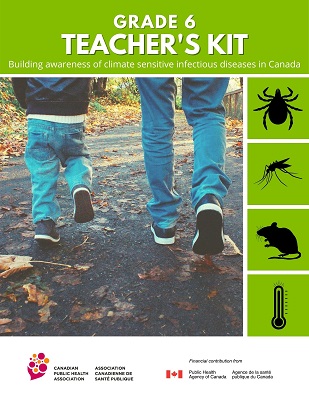-
Grade 6 Poster Contest. Infectious Disease & Climate Change: Awareness & prevention in your community
The Canadian Public Health Association's poster contest is an opportunity for Grade 6 students from across Canada to learn more about climate sensitive infectious diseases like Lyme disease and West Nile virus, and share awareness and prevention information with their friends, family and communities.
What are climate sensitive infectious diseases? Many diseases are sensitive to changes in the climate, including Lyme disease, West Nile virus, hantavirus, E. coli, giardiasis and salmonellosis. As the climate changes, so too do the patterns of who and where people get the disease. Learn more about climate sensitive infectious diseases.
We are no longer accepting submissions as the poster contest is now closed.
See the winning entries from the 2024 Poster Contest
See the honorable mentions from the 2024 Poster Contest
See the winning entries from the 2023 Poster Contest
See the winning entries from the 2022 Poster Contest
See the winning entries from the 2021 Poster Contest
Classroom resources such as the ‘Teacher’s Toolkit’ remain available for those who wish to continue to incorporate lessons on infectious disease and climate change into the classroom.
classroom Resources
Teachers: Are you looking to incorporate climate change and infectious disease topics into your lessons? We have developed a Teacher’s Kit for you. This toolkit includes a five-lesson plan to guide teachers in facilitating a rich, cross-curricular learning experience for students, borrowing on skills from Science, Math, Language, Geography, Physical Education, Health, and Art. It also includes instructions on helping your students develop their poster entries, and links to additional resources including videos, websites and other teaching materials.
The Teacher's Kit includes five lessons plans and the following fillable pdfs, that can be downloaded separately:

